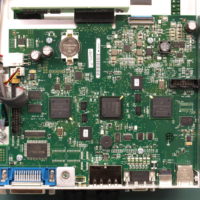Scott Brennen’s and Dan Kriess’ post Digitalization and Digitization has been translated into Japanese by Akiko Uchida. For our readers who might want to read in Japanese see IT Lexicon.


Scott Brennen’s and Dan Kriess’ post Digitalization and Digitization has been translated into Japanese by Akiko Uchida. For our readers who might want to read in Japanese see IT Lexicon.

In this post I want to pose and answer two questions: are surveillance capitalists behaviorists? And does it matter? Short answer: surveillance capitalists are not behaviorists, but behavioralists. Behavioralists are okay with guiding individual level behavior as long as it leads to higher-order system behavior that they think is useful; in other words, they have a different theory of freedom than behaviorists. Painting Silicon Valley engineers as behaviorists is no doubt politically useful (on which more below) but will it be persuasive when push comes to shove in the battle to regulate the digital economy? I try to untangle some of these contradictions below.

In the mid-1970s, before you could buy a computer at the store and no one yet called them “personal,” tech enthusiasts in the U.S. gathered around newsletters and magazines to imagine a more computerized future. For the past two years, my research assistant Rahul Zalkikar and I have been systematically exploring the first five years […]

This is an essay about technology, power relations and basic dignity. It is about the commercialization of online platforms and the difficulties of retaining individual power and autonomy online. It is about the gentrification of the internet. When I call the internet gentrified, I’m describing shifts in power and control that limit what we can do online. I’m […]

Documenting Aftermath (MIT Press) (Amazon) looks at Northern California earthquakes in 1868, 1906, 1989, and today, and asks how information orders shaped post-disaster knowledge. I examine the institutions, infrastructures, and practices that shape how information is produced, circulated, shared, and used as a means of surveillance and control. This excerpt is derived from Chapter 5, which […]